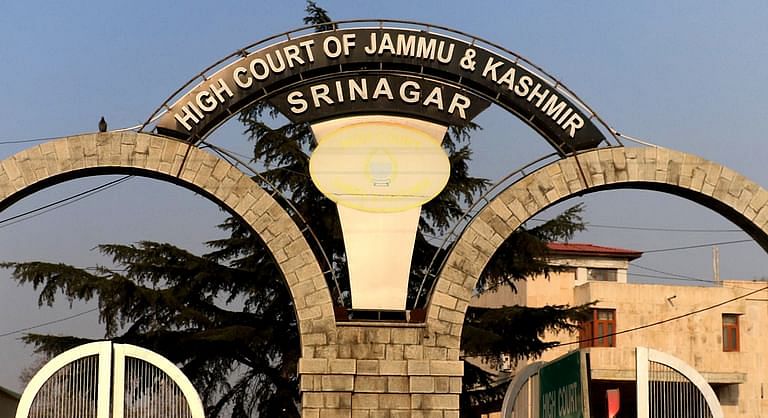Srinagar, July 15: The High Court of J&K and Ladakh on Friday held that Special Court only or in its absence a Sessions Court can grant or refuse bail in an offence under Unlawful Activities (Prevention) Act.
A bench of Justice Sanjay Dhar said this while allowing a plea by the government against an order by Chief Judicial Magisterate CJM) Bandipora passed on August 8, 2018 whereby bail was granted to an accused in a FIR (59/2017) for offences under sections 13, 18 and 19 of ULA(P) Act registered with Police Station, Hajin.
The question of law before the Court to consider was whether a Judicial Magistrate has jurisdiction to entertain and decide a bail application in respect of offences under the provisions of ULA(P) Act when no Special Courts were designated under NIA Act.
The contention of the state was that the CJM did not have jurisdiction to pass the bail order saying “it is only a Special Court designated under National Investigation Agency Act, 2008 which has jurisdiction to grant or refuse bail in a Scheduled offence”.
In response to this contention, the accused argued that at the relevant time no Special Courts were designated in terms of the provisions of NIA Act and that offences under ULA(P) Act were triable by ordinary Sessions Courts and, as such, the Chief Judicial Magistrate was having jurisdiction to entertain and decide the bail application even in cases relating to offences under ULA(P) Act.
“The question of law that has fallen for consideration in this case is whether a Judicial Magistrate has jurisdiction to entertain and decide a bail application in respect of offences under the provisions of ULA(P) Act when no Special Courts have been designated in terms of Section 22 of the NIA Act,” Court said. The court ruled that Judicial Magistrate cannot grant or refuse bail in an offence under ULA(P) Act while referring to various provisions in the NIA Act.
“It is only the Special Court or in the absence of a Special Court, a Sessions Court exercising powers of a Special Court, which can entertain and grant/refuse bail to a person accused of an offence under the provisions of ULA(P) Act, which finds mention in the Schedule to NIA Act,” the court said, adding, “bail in a particular offence can be granted/refused only by a court which has jurisdiction to take cognizance or try such offence.”
Underscoring that a Judicial Magistrate has neither the jurisdiction to take cognizance of offences under ULA(P) Act nor he is vested with jurisdiction to try such offences, the court said: “It is only a Special Court or in its absence a Sessions Court exercising powers of Special Court which is vested with such power”.
Thus, the court said, a Judicial Magistrate cannot grant or refuse bail in an offence under ULA(P) Act.






